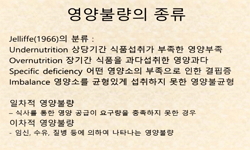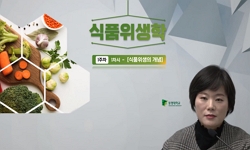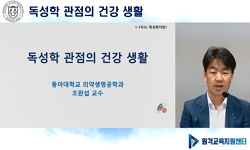Purpose: Nutritional status and support in critically ill patients are important factors in determining patient recovery and prognosis. The aim of this study was to analyze the early nutritional status and the methods of nutritional support in critica...
http://chineseinput.net/에서 pinyin(병음)방식으로 중국어를 변환할 수 있습니다.
변환된 중국어를 복사하여 사용하시면 됩니다.
- 中文 을 입력하시려면 zhongwen을 입력하시고 space를누르시면됩니다.
- 北京 을 입력하시려면 beijing을 입력하시고 space를 누르시면 됩니다.

중독 중환자에서의 초기 영양상태평가와 예후와의 관계 = Assessment of early nutritional state in critical patients with intoxication and the effect of nutritional status on prognosis
한글로보기https://www.riss.kr/link?id=A108000402
- 저자
- 발행기관
- 학술지명
- 권호사항
-
발행연도
2021
-
작성언어
-
- 주제어
-
등재정보
KCI등재
-
자료형태
학술저널
-
수록면
93-99(7쪽)
-
KCI 피인용횟수
0
- DOI식별코드
- 제공처
- 소장기관
-
0
상세조회 -
0
다운로드
부가정보
다국어 초록 (Multilingual Abstract)
Purpose: Nutritional status and support in critically ill patients are important factors in determining patient recovery and prognosis. The aim of this study was to analyze the early nutritional status and the methods of nutritional support in critically ill patients with acute poisoning and to evaluate the effect of nutritional status on prognosis.
Methods: A retrospective study was conducted in tertiary care teaching hospital from January 2018 to December 2020. in an emergency department of university hospital, 220 patients who were stayed more than 2 days of poisoning in intensive care unit were enrolled.
Results: 155 (70.5%) of patients with acute poisoning had low-risk in nutritional risk screening (NRS). Patients with malignancy had higher NRS (low risk 5.2%, moderate risk 18.5%, high risk 13.2%, p=0.024). Patients of 91.4% supplied nutrition via oral route or enteral route. Parenteral route for starting method of nutritional support were higher in patients with acute poisoning of herbicide or pesticide (medicine 3.2%, herbicide 13.8%, pesticide 22.2%, p=0.000). In multivariate logistic regression analysis, herbicide or pesticide intoxication, higher risk in NRS and sequential organ failure assessment over 4.5 were affecting factor on poor recovery at discharge.
Conclusion: NRS in patients intoxicated with herbicide or pesticide were higher than that in patients intoxicated with medicine intoxication. Enteral nutrition in patients intoxicated with herbicide or pesticide was less common. Initial NRS was correlated with recovery at discharge in patient with intoxication. It is expected to be helpful in finding patients with high-risk nutritional status in acute poisoning patients and establishing a treatment plan that can actively implement nutritional support.
참고문헌 (Reference)
1 Yan XX, "[Changes of intestinal mucosal barrier function and effects of early enteral nutrition in patients with severe organophosphorus poisoning]" 99 : 442-446, 2019
2 Greene S, "Tintinalli’s Emergency Medicine A Comprehensive Study Guide" McGraw Hill 1300-1309, 2020
3 Connors NJ, "Tintinalli’s Emergency Medicine A Comprehensive Study Guide" McGraw Hill 1296-1300, 2020
4 Jung YH, "The association of body mass index with outcomes and targeted temperature management practice in cardiac arrest survivors" 35 : 268-273, 2017
5 Wleklik M, "The Role of Nutritional Status in Elderly Patients with Heart Failure" 22 : 581-588, 2018
6 McMillan DC, "Systemic inflammation, nutritional status and survival in patients with cancer" 12 : 223-226, 2009
7 Wolf JH, "Preoperative Nutritional Status Predicts Major Morbidity After Primary Rectal Cancer Resection" 255 : 325-331, 2020
8 Chandra RK, "Nutritional status and immune responses" 13 : 455-461, 1993
9 Schmidt SB, "Nutritional situation of enterally fed patients in neurological early rehabilitation and impact of nutritional status on functional outcome" 39 : 425-432, 2020
10 Alvaro Sanz E, "Nutritional risk and malnutrition rates at diagnosis of cancer in patients treated in outpatient settings : Early intervention protocol" 57 : 148-153, 2019
1 Yan XX, "[Changes of intestinal mucosal barrier function and effects of early enteral nutrition in patients with severe organophosphorus poisoning]" 99 : 442-446, 2019
2 Greene S, "Tintinalli’s Emergency Medicine A Comprehensive Study Guide" McGraw Hill 1300-1309, 2020
3 Connors NJ, "Tintinalli’s Emergency Medicine A Comprehensive Study Guide" McGraw Hill 1296-1300, 2020
4 Jung YH, "The association of body mass index with outcomes and targeted temperature management practice in cardiac arrest survivors" 35 : 268-273, 2017
5 Wleklik M, "The Role of Nutritional Status in Elderly Patients with Heart Failure" 22 : 581-588, 2018
6 McMillan DC, "Systemic inflammation, nutritional status and survival in patients with cancer" 12 : 223-226, 2009
7 Wolf JH, "Preoperative Nutritional Status Predicts Major Morbidity After Primary Rectal Cancer Resection" 255 : 325-331, 2020
8 Chandra RK, "Nutritional status and immune responses" 13 : 455-461, 1993
9 Schmidt SB, "Nutritional situation of enterally fed patients in neurological early rehabilitation and impact of nutritional status on functional outcome" 39 : 425-432, 2020
10 Alvaro Sanz E, "Nutritional risk and malnutrition rates at diagnosis of cancer in patients treated in outpatient settings : Early intervention protocol" 57 : 148-153, 2019
11 Vranesic BD, "Nutritional issues and considerations in the elderly : an update" 61 : 180-183, 2020
12 Kishimoto H, "Nutritional improvement is associated with better functional outcome in stroke rehabilitation:A cross-sectional study using controlling nutritional status" 52 : jrm00029-, 2020
13 Das UN, "Nutritional factors in the prevention and management of coronary artery disease and heart failure" 31 : 283-291, 2015
14 Sung AJ, "Multicenter Survey of Intoxication Cases in Korean Emergency Departments: 2nd Annual Report, 2009" 10 : 22-32, 2012
15 Sertaridou E, "Gut failure in critical care : old school versus new school" 28 : 309-322, 2015
16 McClave SA, "Guidelines for the Provision and Assessment of Nutrition Support Therapy in the Adult Critically Ill Patient: Society of Critical Care Medicine (SCCM) and American Society for Parenteral and Enteral Nutrition (A.S.P.E.N.)" 40 : 159-211, 2016
17 Seungho Ham, "Epidemiology and regional differences of acute poisonings of eight cities in Gyeonggi-do province in Korea using data from the National Emergency Department Information System of Korea" 대한응급의학회 7 (7): 43-51, 2020
18 Ko Y, "Emergency department visits due to pesticide poisoning in South Korea, 2006-2009" 50 : 114-119, 2012
19 Matsuyama T, "Effect of Serum Albumin Concentration on Neurological Outcome After Out-of-Hospital Cardiac Arrest (from the CRITICAL [Comprehensive Registry of Intensive Cares for OHCA Survival] Study in Osaka, Japan)" 121 : 156-161, 2018
20 Moses V, "Early hypocaloric enteral nutritional supplementation in acute organophosphate poisoning--a prospective randomized trial" 47 : 419-424, 2009
21 Reintam BA, "Early enteral nutrition in critically ill patients : ESICM clinical practice guidelines" 43 : 380-398, 2017
22 Kondrup J, "ESPEN guidelines for nutrition screening 2002" 22 : 415-421, 2003
23 Singer P, "ESPEN guideline on clinical nutrition in the intensive care unit" 38 : 48-79, 2019
24 Association AP, "Diagnostic and statistical manual of mental disorders (DSM-5®)" American Psychiatric Pub 2013
25 Kim BK, "Characteristics of elderly patients with acute poisoning" 8 : 61-68, 2010
26 Alwarawrah Y, "Changes in Nutritional Status Impact Immune Cell Metabolism and Function" 9 : 1055-, 2018
27 박종욱, "Assessment and Methods of Nutritional Support during Atropinization in Organophosphate and Carbamate Poisoning Cases" 대한임상독성학회 18 (18): 123-129, 2020
28 Zhang Y, "Acute poisoning in Shenyang, China: a retrospective and descriptive study from 2012 to 2016" 8 : e021881-, 2016
29 Kim K, "A nationwide study of patients hospitalised for poisoning in Korea based on Korea National Hospital Discharge In-Depth Injury Survey data from 2005 to 2009" 5 : e008823-, 2015
동일학술지(권/호) 다른 논문
-
급성 중독으로 응급실에 내원하여 사망한 환자의 원인물질 및 시간 분포
- 대한임상독성학회
- 이현재 ( Hyeonjae Lee )
- 2021
- KCI등재
-
중증 급성 중독 환자에서 급성 신장 손상과 병원 내 사망률을 예측하기 위한 강이온차(Strong Ion Gap)의 중요성
- 대한임상독성학회
- 심태진 ( Tae Jin Sim )
- 2021
- KCI등재
-
글라이포세이트 중독 환자에서 포함된 염의 종류에 따른 예후의 차이
- 대한임상독성학회
- 정민규 ( Jeong Min Gyu )
- 2021
- KCI등재
-
급성 일산화탄소 중독 후 해마에서 Parvalbumin 양성 중간뉴론의 변화에 대한 N-acetylcystein의 효과
- 대한임상독성학회
- 김선태 ( Seon Tae Kim )
- 2021
- KCI등재
분석정보
인용정보 인용지수 설명보기
학술지 이력
| 연월일 | 이력구분 | 이력상세 | 등재구분 |
|---|---|---|---|
| 2027 | 평가예정 | 재인증평가 신청대상 (재인증) | |
| 2021-01-01 | 평가 | 등재학술지 유지 (재인증) |  |
| 2018-01-01 | 평가 | 등재학술지 선정 (계속평가) |  |
| 2016-11-17 | 학회명변경 | 영문명 : Journal of The Korean Society of Clinical Toxicology -> Korean Society of Clinical Toxicology |  |
| 2016-01-01 | 평가 | 등재후보학술지 선정 (신규평가) |  |
학술지 인용정보
| 기준연도 | WOS-KCI 통합IF(2년) | KCIF(2년) | KCIF(3년) |
|---|---|---|---|
| 2016 | 0 | 0 | 0 |
| KCIF(4년) | KCIF(5년) | 중심성지수(3년) | 즉시성지수 |
| 0 | 0 | 0 | 0 |





 ScienceON
ScienceON KISS
KISS





